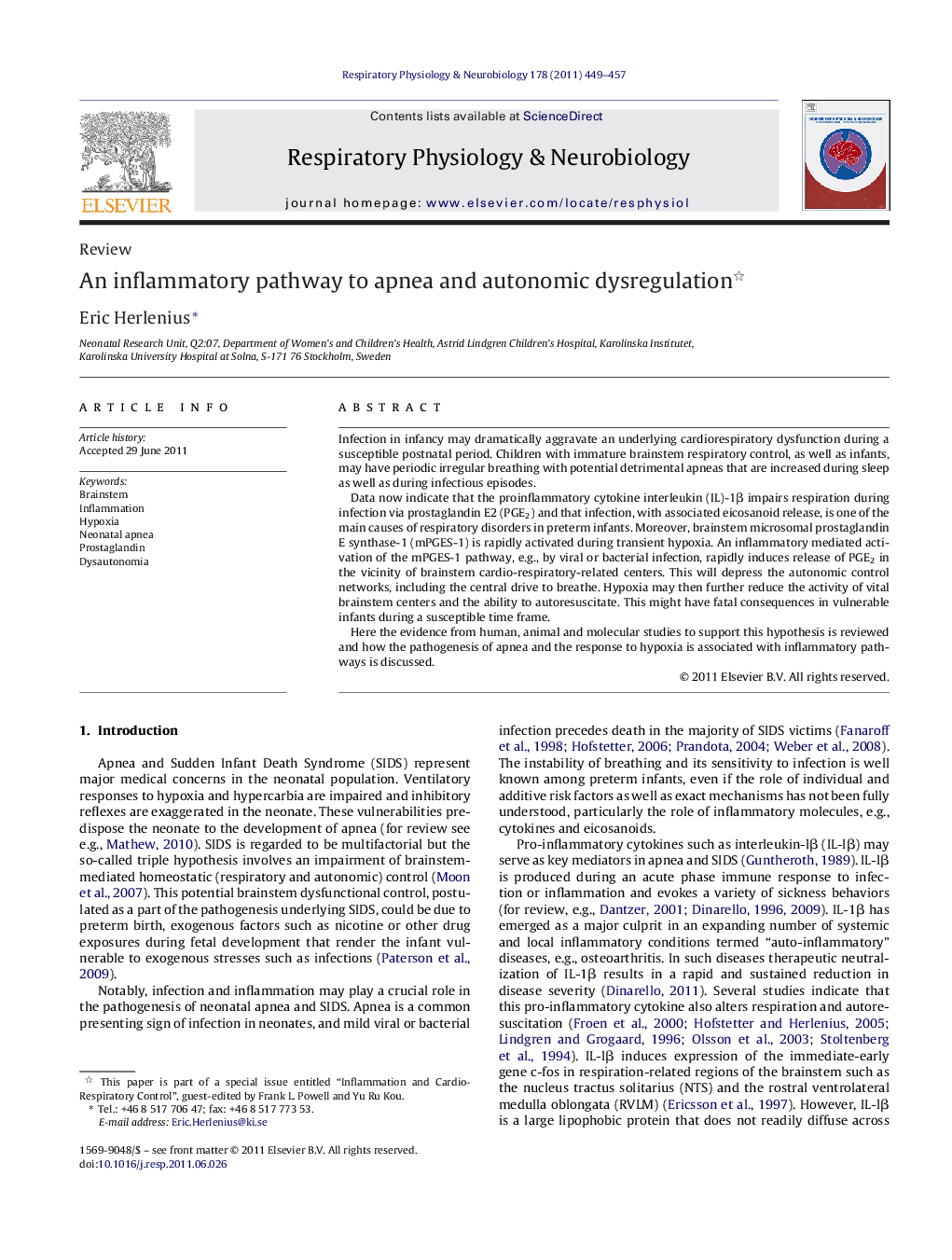| کد مقاله | کد نشریه | سال انتشار | مقاله انگلیسی | نسخه تمام متن |
|---|---|---|---|---|
| 2847437 | 1167365 | 2011 | 9 صفحه PDF | دانلود رایگان |

Infection in infancy may dramatically aggravate an underlying cardiorespiratory dysfunction during a susceptible postnatal period. Children with immature brainstem respiratory control, as well as infants, may have periodic irregular breathing with potential detrimental apneas that are increased during sleep as well as during infectious episodes.Data now indicate that the proinflammatory cytokine interleukin (IL)-1β impairs respiration during infection via prostaglandin E2 (PGE2) and that infection, with associated eicosanoid release, is one of the main causes of respiratory disorders in preterm infants. Moreover, brainstem microsomal prostaglandin E synthase-1 (mPGES-1) is rapidly activated during transient hypoxia. An inflammatory mediated activation of the mPGES-1 pathway, e.g., by viral or bacterial infection, rapidly induces release of PGE2 in the vicinity of brainstem cardio-respiratory-related centers. This will depress the autonomic control networks, including the central drive to breathe. Hypoxia may then further reduce the activity of vital brainstem centers and the ability to autoresuscitate. This might have fatal consequences in vulnerable infants during a susceptible time frame.Here the evidence from human, animal and molecular studies to support this hypothesis is reviewed and how the pathogenesis of apnea and the response to hypoxia is associated with inflammatory pathways is discussed.
Journal: Respiratory Physiology & Neurobiology - Volume 178, Issue 3, 30 September 2011, Pages 449–457